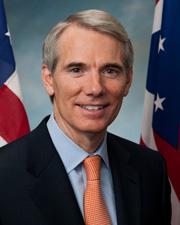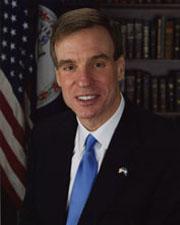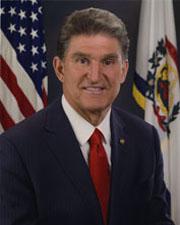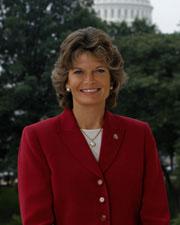0
Energy Savings and Industrial Competitiveness Act of 2015
1/11/2023, 1:27 PM
Congressional Summary of S 720
Energy Savings and Industrial Competitiveness Act of 2015
This bill revises a variety of programs to encourage energy efficiency in buildings, industry, the federal government, and certain appliances.
TITLE I--BUILDINGS
Subtitle A--Building Energy Codes
(Sec. 101) This bill amends the Energy Conservation and Production Act (ECPA) to require states and Indian tribes to measure and certify their compliance with certain residential and commercial building energy codes by a specified deadline.
The Department of Energy (DOE) must: (1) provide technical and financial support to states and Indian tribes for developing stretch codes and advanced standards for achieving even greater energy efficiency in buildings, (2) update model building energy codes to achieve energy savings targets, and (3) submit annual reports on compliance with those codes and any improvements in energy savings resulting from those targets.
DOE must study the feasibility, impact, economics, and merit of: (1) codes requiring buildings to become zero-net-energy; (2) code procedures to incorporate measured lifetimes, not just first-year energy use, in trade-offs and performance calculations; and (3) legislative options for increasing energy savings from building energy codes.
DOE must: (1) support the updating of model building energy codes, and (2) provide technical assistance to organizations that set model building energy codes and standards.
Subtitle B--Worker Training and Capacity Building
(Sec. 111) DOE must provide grants to establish building training and assessment centers at institutions of higher learning to:
- identify and promote opportunities, concepts, and technologies for expanding building energy and environmental performance;
- promote the application of emerging concepts and technologies in commercial and institutional buildings;
- train engineers, architects, building scientists, building energy permitting and enforcement officials, and building technicians in energy-efficient design and operation;
- assist institutions of higher education in training building technicians;
- promote research and development for the use of alternative energy sources and distributed generation to supply heat and power for buildings;
- coordinate with and assist state-accredited technical training centers, community colleges, Tribal Colleges or Universities, and local offices of the National Institute of Food and Agriculture; and
- ensure appropriate services are provided to each region of the United States.
(Sec. 112) DOE must make grants to pay the federal share (i.e., 50%) of career skills training programs that help students obtain a certification to install energy efficient buildings technologies.
Subtitle C--School Buildings
(Sec. 121) DOE, acting through the Office of Energy Efficiency and Renewable Energy, must act as the lead federal agency for coordinating and disseminating information on existing federal programs and assistance that may be used to help initiate, develop, and finance energy efficiency, renewable energy, and energy retrofitting projects for schools.
TITLE II--INDUSTRIAL EFFICIENCY AND COMPETITIVENESS
Subtitle A--Manufacturing Energy Efficiency
(Sec. 202) The bill amends the Energy Independence and Security Act of 2007 (EISA) by renaming the energy-intensive industries program as the future of industry program. For purposes of the program, the bill defines "energy service provider" to mean any business providing technology or services to improve the energy efficiency, water efficiency, power factor, or load management of a manufacturing site or other industrial process in an energy-intensive industry, or any utility operating under a utility energy service project.
Industrial research and assessment centers must: (1) coordinate with Manufacturing Extension Partnership Centers of the National Institute of Standards and Technology and DOE's Building Technologies Program, (2) increase partnerships with DOE's national laboratories and with energy service providers and technology providers, (3) identify opportunities for reducing greenhouse gas emissions, and (4) promote sustainable manufacturing practices for small- and medium-sized manufacturers.
DOE must: (1) provide funding for certain outreach and coordination activities of industrial research and assessment centers; and (2) pay the federal share of associated internship programs under which students work with or for industries, manufacturers, and energy service providers to implement the centers' recommendations.
DOE must establish an advisory steering committee to provide recommendations on planning and implementing DOE's Advanced Manufacturing Office.
(Sec. 203) The bill amends the Energy Policy and Conservation Act by directing DOE to: (1) conduct on-site technical assessments at the request of a manufacturer to identify opportunities for improving sustainability; and (2) carry out an industry-government partnership program to research, develop, and demonstrate new sustainable manufacturing and industrial technologies and processes.
Subtitle B--Supply Star
(Sec. 211) A Supply Star program is established within DOE to identify and promote practices, recognize companies, and recognize products that use highly efficient supply chains that conserve energy, water, and other resources. DOE may award grants or other incentives for studying supply chain energy resource efficiency and demonstrating and achieving reductions in the energy resource consumption of commercial products.
Subtitle C--Extended Product System Rebate Program
(Sec. 221) DOE must establish a rebate program for expenditures for purchasing and installing a new constant speed electric motor control that reduces energy use by at least 5%.
Subtitle D--Transformer Rebate Program
(Sec. 231) DOE must also establish a rebate program for expenditures made by qualified industrial or manufacturing facilities, commercial buildings, and multifamily residential buildings for the purchase and installation of certain energy efficient transformers. This program terminates on December 31, 2017.
TITLE III--FEDERAL AGENCY ENERGY EFFICIENCY
(Sec. 301) The bill amends the National Energy Conservation Policy Act to require each federal agency to collaborate with the Office of the Management and Budget (OMB) to develop an implementation strategy for the maintenance, purchase, and use of energy-efficient and energy-saving information technologies.
OMB must establish performance goals for evaluating the efforts of agencies in improving such information technology systems.
(Sec. 302) The General Services Administration (GSA) may use appropriated funds to update the design of a federal building in order to meet energy efficiency and other standards, if the building project has congressional approval, the design is substantially completed, and construction on the building has not begun.
(Sec. 303) The bill amends the EISA to revise requirements for the voluntary national information program. DOE must: (1) maintain a data center energy practitioner program for certifying energy practitioners qualified to evaluate the energy usage and efficiency opportunities in federal data centers, (2) establish an open data initiative for federal data center energy usage data, (3) participate in efforts to harmonize global specifications and metrics for data center energy efficiency, and (4) facilitate in the development of an efficiency metric that measures the energy efficiency of a data center.
(Sec. 304) The Department of Housing and Urban Development (HUD) must establish a program that demonstrates the use of budget-neutral, performance-based agreements for energy or water conservation improvements at multifamily residential units. This program terminates on September 30, 2018.
TITLE IV--REGULATORY PROVISIONS
Subtitle A--Third-Party Certification Under Energy Star Program
(Sec. 401) The bill amends the EPCA to require the Environmental Protection Agency (EPA) to revise the certification requirements for the labeling of consumer, home, and office electronic products for program partners that have complied with all requirements of the Energy Star program for a period of at least 18 months. Those requirements may not require third-party certification for a product to be listed.
Subtitle B--Federal Green Buildings
(Sec. 411) The bill amends the EISA by directing the GSA's Office of Federal High-Performance Green Buildings to identify and provide to DOE a list of private sector green building certification systems that are most likely to encourage a comprehensive and environmentally sound approach to certification of green buildings.
Subtitle C--Energy Performance Requirement for Federal Buildings
(Sec. 421) The bill amends the National Energy Conservation Policy Act to extend energy efficiency performance targets for federal buildings through FY2017 (from a 33% reduction from 2003 energy consumption level for FY2016 to a 36% reduction for FY2017). Federal buildings where energy intensive activities are carried out may be excluded from those targets. The bill establishes requirements for excluded buildings.
(Sec. 422) The bill amends the ECPA to expand the scope of existing energy standards for new federal buildings to cover buildings altered by federal agencies and major renovations.
DOE must establish federal building energy efficiency performance standards that require federal buildings to meet or exceed applicable state and local building energy codes if the state or local codes are more stringent than the ASHRAE Standard 90.1 or the International Energy Conservation Code.
(Sec. 423) HUD must develop and issue underwriting and appraisal guidelines that account for the energy cost savings of a loan applicant that has a qualified home energy efficiency report.
HUD must reconvene an advisory group to provide advice on the implementation of the enhanced energy efficiency underwriting criteria.
Subtitle D--Voluntary Verification Programs for Air Conditioning, Furnace, Boiler, Heat Pump, and Water Heater Products
(Sec. 431) The bill amends the EPCA by requiring DOE and the EPA to rely on voluntary certification programs for air conditioning, furnace, boiler, heat pump, and water heater products.
TITLE V--MISCELLANEOUS
(Sec. 501) For purposes of complying with the Statutory Pay-As-You-Go Act of 2010, the budgetary effects of this bill shall be determined by reference to the latest statement titled "Budgetary Effects of PAYGO Legislation."
(Sec. 502) The authorization of amounts under this bill and its amendments shall be effective for any fiscal year only to the extent and in the amount provided in advance in appropriations Act.





